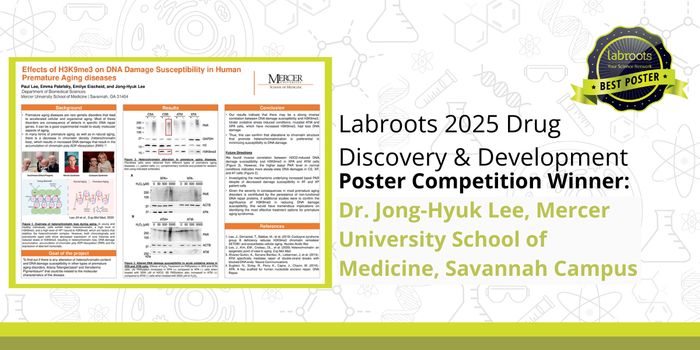Top Advances of 2017 from Moffitt Cancer Center
As the year draws to a close, many institutes are reflecting back over their benchmarks and achievements of the past 12 months, and begin to look toward their goals and ambitions for the next 12 to come. One such institute is a NCI designated comprehensive cancer center housed in Tampa, Florida, H. Lee Moffitt Cancer Center and Research Institute, which was ranked number 6 cancer hospital in the nation by US News and World Reports for 2016-2017. In their newsletter, “Take Charge”, they highlight their top research developments of 2017 including new therapeutic applications.
Their top listed discovery involved CAR T therapy, or chimeric antigen receptor T-cell therapy, which has become a popular and effective new cancer combative nation-wide for primarily blood-borne cancers, but until now was only available in clinical trials as a treatment option. Moffitt was the first hospital in the US to treat an adult lymphoma patient with the now FDA approved and commercially available Yescarta CAR T therapy. Essentially, this therapy is precision medicine-based, or a personalized therapy that utilizes a patient’s own T-cells from their immune system by training them to identify cancer cells as foreign, and attack and kill them thus eradicating the cancer. This modality proved very effective and promising in clinical trials and will hopefully save many lives now that it has progressed beyond these trials.
Their second listed discovery included a combination therapy for lung cancer, the leading cause of cancer deaths in the US for both men and women, which was funded by a Stand Up To Cancer (SU2C) grant. This study looked specifically at non-small cell lung cancer, which accounts for about 85% of all lung cancer cases, and also involved utilizing a patient’s immune system to combat cancer. The pilot study involves two different immunotherapy modalities including a checkpoint inhibitor, nivolumab tradename Opdivo, which is an antibody which blocks the PD1 receptor expressed by T-cells which when not blocked acts as a suppressive mechanism to keep T-cells from attacking and killing cancer cells. However, this antibody allows T-cells to be reactivated to attack the tumor. In Moffitt’s study, this therapy is combined with what is known as adoptive T-cell therapy where patient’s T-cells are harvested and grown out in a lab to multiply the number of cells before being reintroduced into the patient. So essentially, the are expanding the number of cells to attack the tumor, and then arming these cells to in fact, attack. Dr. Scott Antonia who is the head of this study states that "Immunotherapy has changed the way we are treating lung cancer, but there are still opportunities to make these types of therapies even better for patients. This grant from Stand Up To Cancer is a big step toward accelerating a new therapy that could help the hundreds of thousands of patients diagnosed with this disease each year."
Number three on Moffitt’s list of top discoveries for 2017: another trending area of study, repurposing existing cancer fighting drugs toward new cancer targets. In this study, researchers investigated off-target effects of an ALK inhibitor approved for use in non-small cell lung cancer, ceritinib, which they found to be effective against novel targets previously unidentified in addition to ALK. While it was previously thought that ceritinib was only effective in tumors with ALK rearrangements, this study showed that it was also effective in tumors without such a rearrangement, and that this occurs through a protein that is known to confer resistance to another cancer therapeutic used heavily in the clinic, paclitaxel. This lead the researchers to speculate that combining ceritinib with paclitaxel may overcome resistance and provide improved efficacy. Their approach included use of “A combined screening, proteomics and computer-based modeling approach to identify drugs that act on multiple targets and to determine how they function. In the future, this strategy may facilitate further drug repurposing efforts and lead to an increase in new therapy options for patients with difficult-to-treat diseases."
The remaining two discoveries which Moffitt highlighted included adaptive therapy and advances in aggressive leukemias. Adaptive therapy involves tailoring the schedule of chemotherapy, the frequency, dosage, and type used to treat a tumor, based on its response to these therapies. The idea is that if you break up the consistency of drug administration, the tumor cannot as easily adapt to and overcome (therefor becoming resistant to) the therapy. Researchers at Moffitt are looking into this using basic evolutionary principles tested through math modeling and confirming in lab studies. At Moffitt, this type of approach has proven effective in patients with metastatic prostate cancer. Not to mention it cuts the cost of treatment!! Lastly, in acute myeloid leukemia’s court (AML), the first new drug in 40 years was approved by the FDA, and this approval was based on the trials conducted at Moffitt. This new drug, Vyxeos, is actually a combination of two chemotherapeutics that when used together, improves outcome significantly compared to either of the two drugs alone.
These accomplishments are very promising, and show that we are improving cancer care through promising new therapies and therapeutic approaches, even if it might not always seem like it. This showcases just one institute, but summarizes research in several hot fields for cancer. We look forward to what all of the cancer institutes, including Moffitt, have to report this time in the new year!!
Sources: Moffitt.org, Wikipedia, Pixabay, Cancer Treatment Centers of America, Youtube
What is Cancer Immunotherapy??









